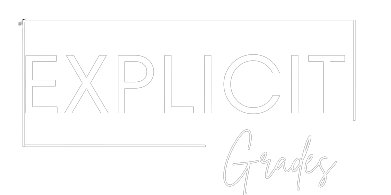In the realm of online education, maintaining academic integrity is a critical challenge.
This brings us to a pressing question: “Can StraighterLine detect cheating?”
Exploring this query isn’t just about technological capabilities, but also reflects broader concerns in online learning.
This post delves into how StraighterLine confronts the issue of academic honesty, offering a nuanced perspective on the tools and strategies employed.
Whether you’re a student or an educator, join us in uncovering the complexities of upholding integrity in digital learning environments.
Does straighterline detect cheating?
StraighterLine employs various sophisticated methods to detect and prevent cheating, ensuring academic integrity in its online courses.
The platform’s approach to upholding honesty is multifaceted, utilizing a combination of technology and policy to maintain a fair learning environment.
Here’s a closer look at how StraighterLine detects cheating:
- Proctored Exams: One of the primary methods StraighterLine uses to detect cheating is through proctored examinations. These exams require students to be monitored via webcam, microphone, and access to their computer screen. Proctors can watch for suspicious behavior, ensuring that the student is the one taking the test and that no unauthorized materials are being used.
- Plagiarism Detection Software: For written assignments, StraighterLine utilizes plagiarism detection tools. These sophisticated software systems scan student submissions for similarities to existing sources, flagging potential instances of plagiarism. This helps ensure that all written work is original and properly cited.
- IP Monitoring and Analytics: The platform tracks login information and uses analytics to detect unusual activity. For instance, if a student’s account is accessed from vastly different locations in a short time frame, it could indicate that someone else is accessing the course material or assessments.
- Randomized Question Banks: StraighterLine employs randomized question banks for quizzes and tests. This means each student receives a unique set of questions, making it difficult to share answers with others.
- Strict Academic Policies: Beyond technological measures, StraighterLine has strict academic policies in place. These policies are clearly communicated to students, outlining the consequences of cheating and emphasizing the importance of academic integrity.
- Regular Course Content Updates: Regular updates to course materials and assessment questions help prevent the circulation of answers from previous terms, ensuring each student’s work is a true reflection of their understanding.
By combining these strategies, StraighterLine actively works to detect and discourage cheating, upholding the value of the education it provides.
This commitment to integrity not only benefits the institution but also ensures that the qualifications earned by students are legitimate and respected.
Are StraighterLine Finals Proctored?
Yes, StraighterLine final exams are proctored to ensure the integrity and credibility of the assessment process.
This proctoring system is a critical component of StraighterLine’s commitment to upholding academic standards in its online courses.
The proctoring process is designed to verify that the person taking the exam is indeed the enrolled student and that they are adhering to the prescribed academic guidelines.
Here’s how it works:
- Webcam and Microphone Monitoring: During finals, students are required to have a functioning webcam and microphone. This allows the proctor to monitor the student visually and audibly, ensuring that no unauthorized assistance or materials are being used.
- Identity Verification: At the beginning of the exam, students must present a valid ID to the proctor. This step verifies that the student registered for the course is the one taking the final exam.
- Screen Sharing: Students share their screen with the proctor, allowing them to monitor the student’s computer activity during the exam. This ensures that students are not accessing unauthorized resources or collaborating with others.
- Real-Time Intervention: Proctors have the ability to intervene in real-time if they observe any suspicious behavior. They can ask questions, request a scan of the room, or take necessary actions to maintain the exam’s integrity.
- Record Keeping: The entire proctored session is recorded. This record can be reviewed if there are any suspicions or allegations of cheating, providing a clear audit trail.
Through these measures, StraighterLine ensures that its finals are conducted fairly and with the utmost academic rigor.
This proctoring process not only deters cheating but also reinforces the value of the qualifications earned by students, making them more meaningful in the academic and professional world.
Is it possible to cheat straighterline exams?
It is possible to cheat on many online learning platforms, including StraighterLine despite the fact that StraighterLine, like many online education providers, has implemented stringent measures to detect and prevent cheating.
These measures include proctored exams, plagiarism detection software, IP monitoring, and strict academic policies.
Here are some of the ways you can cheat in StraighterLine proctored finals
- Impersonation: This involves getting someone else to do the exam for you.
- Access to Unauthorized Resources: The use of unauthorized materials during assignments and exams.
- Collaboration and Communication: With various communication tools available, there’s a risk of students collaborating inappropriately on assignments meant to be completed individually.
- Technology Misuse: Advanced technologies can be used for cheating purposes, such as using sophisticated software to bypass security measures.
- Hiring someone to do your StraighterLine class: This is the most preferred method if you find a good service that can help bypass the StraighterLine
Conclusion
In conclusion, understanding how StraighterLine and similar online education platforms maintain academic integrity is crucial in today’s digital learning landscape.
While the methods employed, such as proctored exams and plagiarism detection software, demonstrate a strong commitment to upholding standards, they also highlight the evolving challenges in online education.
However, despite putting in place stringent measures to curb cheating, students have found clever ways to cheat and bypass all the methods put in place by StraighterLine.

